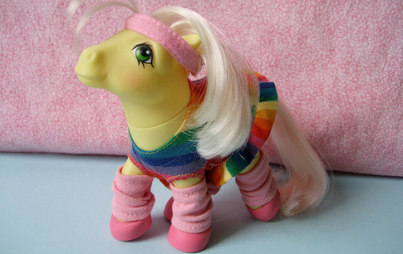
I believe trans women are women. And the sun is hot. It offends me that we’re having this conversation.
"Trans-exclusionary radical feminism" is, by definition, bigoted against trans women. That doesn’t mean bigots don’t sometimes have a point. It was frustrating to watch both sides of the divide on the question of whether trans women are women talk completely past each other in the article What Makes A Woman.
I believe trans women are women. And the sun is hot. It offends me that we’re having this conversation. But I also believe some of the questions Elinor Burkett raises in her op-ed are important, valid questions. Even someone I disagree with in a substantive way can make good points. However, I think that using trans women as the inflection point for this conversation is unkind and unnecessary. And I want to point out how TERFs are browbeating women with the exact same logic, with the same devastating results, as purity-culture religious fundamentalists.
They have a point.
The most interesting question of the piece is in the title: What makes a woman? Feminism is often smeared as some kind of plot by women to elevate women above men. It is, in fact, the movement against sexism.
Feminists, for the most part, do not deny the reality of sex or gender, which are two different things. To oversimplify: sex is biological, gender is cultural. A central question for feminists is how much of what we see as sex is actually gender? Thinking feminists acknowledge that gender differences are a result of both nature and nurture. And we emphasize that no one is sure what the ratio is.
The view that gender is mostly sex, or biologically based, is called gender essentialism. Gender essentialism is often used to justify sexism. You see it everywhere, once you start looking. If women all naturally want to and are better at staying home and raising kids, why would I hire or promote a woman in her childbearing years? Why would I take paternity leave? Why would I encourage my daughter to study STEM? Her brain doesn’t work that way and she’ll be in school during her childbearing years. Why aren’t there more women libertarians? Because they’re too emotional to think rationally about politics. See how this works?
Because it’s not based on solid empirical footing, feminists tend to downplay gender essentialism and focus on culture. They fight against culturally constructed gendered expectations because they are a breeding ground for sexism.
Trans women is not the place to start with this.
Enter trans women. While feminists are downplaying the essential differences between men and women, trans women are literally cutting their bodies to outwardly embody their inner femaleness.
It makes sense that feminists would fixate on trans women. If the goal is to downplay the differences between the sexes, of course you’d be angry at women who are not only not working with you to downplay those differences, but are coming out, facing transphobia, taking hormones, and going through surgery in order to embrace an identity you wish would go away entirely: the patriarchy-approved femme woman.
While feminists are downplaying the differences in the brains of men and women, trans women are cutting their bodies to declare that their brains and their bodies differ.
What Makes a Woman:
"I have fought for many of my 68 years against efforts to put women — our brains, our hearts, our bodies, even our moods — into tidy boxes, to reduce us to hoary stereotypes. Suddenly, I find that many of the people I think of as being on my side — people who proudly call themselves progressive and fervently support the human need for self-determination — are buying into the notion that minor differences in male and female brains lead to major forks in the road and that some sort of gendered destiny is encoded in us."
So it makes sense. But that doesn’t make it right.
Two things: First, Laverne Cox and Caitlyn Jenner aren’t all trans women. One only need look as far as Where Is My Vanity Fair to see the multitudes of trans women who are absolutely defining for themselves what it means to be a woman. Sure, coming out as a woman does indicate that there are differences between men and women. But if you actually look at the reality of trans activism, you know, and not just the rich and famous trans women that the mainstream media has decided middle America is ready for, you see that on the ground they are transforming gender roles and breaking down barriers between and among the sexes into one big genderqueer dance party.
And how about this for some irony: I can see no bigger support to gender essentialism than to declare that your biology dictates your gender.
Not to sound glib about the genderqueer dance party. Because here’s another truth bomb for you TERFs: While you’re sitting there in your tenured ivory tower teaching all-lesbian gender studies classes, trans women are literally risking their lives to live their truth. One in two transgender individuals are sexually abused or assaulted at some point in their lives. They are murdered at least six times the national average.
So while I understand why you’d start with trans women as a focus point for your crusade against gender essentialism, don’t.
It’s the same exact message of purity culture.
Here’s the third and last point I want to make about TERFs. And it is, I think, the most important. Recently feminist icon bell hooks criticized transgender activist and tv star Laverne Cox for her stereotypically “feminine” look of heels and blonde wigs.
Cox defended herself, saying, “This is where I feel empowered, ironically, and comfortable. I think it’s important to note that not all trans women are embracing this, but this trans woman does. And this trans woman feels empowered by this.”
Cox recognized that there is a struggle for women to conform to new and realistic standards of beauty or to the traditional way that beauty is shaped by “imperialist white supremacist patriarchy.” But when she asked the crowd, “Am I feeding into the patriarchal gaze with my blonde wig,” hooks quickly answered “Yes.”
There are two major problems with this, and they’re the same problems I have with religious fundamentalist purity culture. First, when hooks accuses Cox of “feeding into the patriarchal gaze,” she’s transferring blame for what happens in other people’s heads onto Cox’s body.
It’s the exact same thing religious fundies do when they preach modesty to girls. Only instead of accusing girls of causing men to stumble by showing too much skin, hooks is accusing Cox of causing men to be sexist by wearing a wig. The message is the same: “You’re making men” do X or Y that we don’t want them to do. Instead of making men responsible for not being sexist assholes or not being distracted by female flesh, religious fundies and TERFs tell women what they can and can’t wear. What hooks was doing to Cox was publicly shaming her for wearing the “wrong” thing. How much bullshit is that?
Here’s the other bullshit part of religious fundamentalist purity culture and what hooks said. hooks herself is wearing her hair a little longer than you’d see on most men and in braids. At what point is an outfit or hairstyle “feeding into the patriarchal gaze?” Is hair at four inches feminism-approved, but 12 inches patriarchy? Is two inches of cleavage OK, but four undermining women everywhere? Making it appropriate to publicly shame women for failing to fit into arbitrary and unknowable standards of dress is bullshit whether it’s religious fundies or TERFs doing it.
Conclusion
Gender essentialism is a very real and persistent threat to gender equality. It’s easy to see why radfems would focus in on trans women as upholders of pernicious gender norms. But they shouldn’t. First, creating a line between women and trans women is itself gender essentialism. Second, trans activism is one of our best hopes against gender essentialism. Third, trans women are an inappropriate target for cultural criticism, at least while they’re struggling just for basic survival. Fourth, it’s not useful to transfer blame for patriarchy onto women’s bodies via their clothing or hair choices. Fifth, doing so creates an impossible, unclear standard for behavior for women that’s not helpful to the end goals of feminism.




